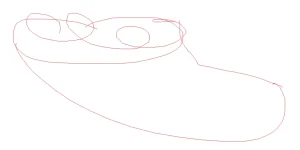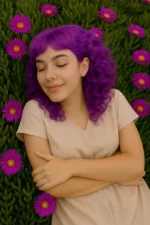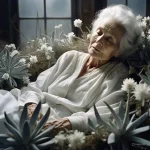Isn't it? I could grab a cucumber out of the fridge and use masking tape to fasten it to the wall exactly 6 feet above the floor, creating art "in the style of" whatever Mr. Banana's real name is, and I could do it in as much time as it takes to grab a cucumber, a tape measure, and some masking tape from the vegetable, tool, and junk drawers. It's not Goya, but your final comment in your last post sure seems to suggest you consider the taped banana to be art.
In AI art, the "creativity" would seem to belong to the person prompting the engine. THey choose the prompts and a product is spit out. You might say that's not "creative," but so also a painter a century ago might say the same thing about taking a photograph. Just as the photographer might respond that image composition and post-processing is creative, so too might an AI "artist" claim that the prompting is creative.
Disagree, hard. I only mentioned Lik being overpriced as a citation of the criticism by
others about his works. His price points are irrelevant to me because I'm not in the market to hang stuff in my house that I didn't create. And that's the focus of my works: what do I like and what do I want to create? As to art as a "product," you'll note that I've been using that term to refer only to the output of AI. I think it's an open question as to whether AI art is a "creation" and have been careful to use the word "create" when I'm talking about people-art, saying only that AI art is a
product in the sense that it's is
produced.
I painted a bowl of fruit (in Paint):
View attachment 67582926
I also drew Jessica Rabbit being pounded by a werewolf:
View attachment 67582927
Is the bowl of fruit "art?" Is the pounding "art?" If neither are are, did the bowl of fruit stop being art as soon as it was repurposed as Jessica Rabbit being pounded by a werewolf? I created both, are either "creative?"
So?
It's not perfect, but the fair use question is absolutely on point. If a person takes four notes from a selection of songs he likes and stitches them together in a computer program to a five-minute song, is that plagiarism or fair use? That's very close to what AI is doing, and may be even closer to the plagiarism side than AI art.
We're still talking about AI output. What does that prove about the argument?




